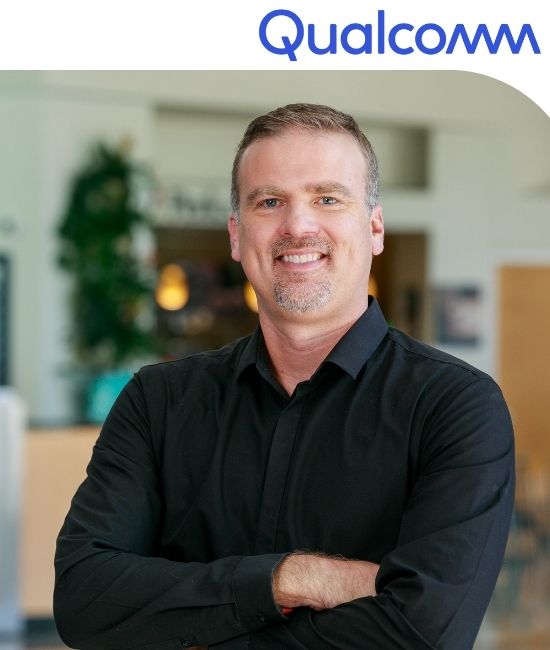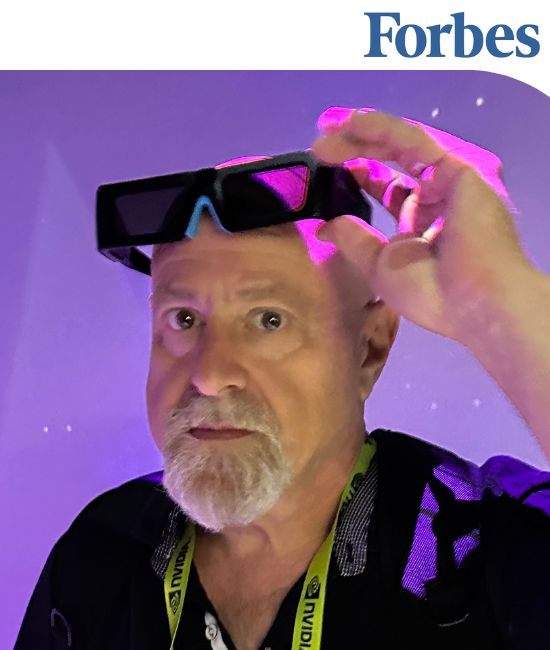09:30 AM - 10:00 AM
Description
Two pioneers of immersive computing in a conversation about the past, present, and future of the 3D web.
Join Mozilla's Dr. Sean White and Unity Technologies’ Tony Parisi as they explore the new roadmap.
Speakers



10:00 AM - 10:30 AM
Description
Mixed reality devices have been inconvenient, expensive, and difficult to develop for.
As the winner of “best startup” at CES 2019 for unveiling the super lightweight MR glasses, nreal light is now ready to run on your daily mobile device, accommodating not only MR apps but all your android ones as well.
Chi Xu, CEO of nreal, will cover milestones for nreal light, while also answering the questions around its pricing, availability and product updates.
With nreal, consumer MR has never been closer.
Speakers
10:30 AM - 11:00 AM
Description
With intelligent transformation on the rise, traditional and emerging technologies in a business are no longer two separate things – they are all interconnected to a larger IT infrastructure as an extension of one another. Vice President of Strategy and Emerging Business for Lenovo’s Intelligent Devices Group, Jon Pershke will discuss the commercial possibilities of doing ‘Smarter Business’ and the importance of exploring new opportunities that emerging technologies like AR/VR can bring companies - to better design, manufacture, operate and maintain their products or to train their people. Jon will be joined by a special guest and partner who will unpack how AR has created significant ROI for their business and people.
Speakers

11:30 AM - 12:00 PM
Description
ABB and RE’FLEKT will discuss what it takes to introduce AR into your organization’s product lifecycle. We will talk you through our joint AR story and reveal how AR solutions are already improving a range of workflows from support to maintenance and training Let this industry example enlighten you on how to build your own business AR apps out of everything you already have within your company.
The challenges for improving repair and maintenance scenarios in industry are clear: Increase first-time fix rates, minimize the risk of choice for the technician, optimize the use of existing content, and much more. However, technical solutions that can help the company achieve these remain scarce. Outdated business technology (phone, fax, user manuals etc.) and innovations designed for consumer markets (Skype, Facetime, Slack etc.) simply don't fulfil the need for an easy-to-use support tool for industrial environments and scenarios.
Content automation and remote collaboration have empowered ABB to pursue their vision of defining the future workplace..
This is where AR and MR have emerged as a practical, deployable solution for visualization, interaction and guidance in remote support scenarios. RE’FLEKT are experts in creating augmented enterprise ecosystems fueled by AR content through simply using internal data and knowledge that’s already available. This approach has helped ABB to aim for bringing significant improvements to the areas of Remote Assistance, Guided Instructions, Error Diagnostics and Mobile Integrated Procedures.
Speakers


12:00 PM - 12:30 PM
Description
XR has the potential to become one of the world’s most disruptive computing platforms in the coming decade. Over the past year, we’ve seen significant strides in technology and with the introduction of new XR form factors such as standalone, tethered viewers and dual-mode HMDs – there has been an acceleration of XR opportunities, use cases and adoption.
In this keynote presentation, Hugo Swart, Head of XR at Qualcomm Technologies, Inc. will speak to cutting-edge technological developments and how Qualcomm has met previous challenges, with a forward outlook on how strong ecosystem collaboration, the proliferation of 5G and AI will fast-track the industry timeline to an XR ubiquitous world.
Speakers

01:30 PM - 02:00 PM
Description
As the speed of technology continues to accelerate automation in the manufacturing world, the inevitable question of whether or not the “human touch” will become obsolete is top of mind for workers. The fear that robots and smart technologies will take everyone's jobs is prevalent, but not necessarily true. AR has the power to be a job creator, not a job eliminator. Its ability to make anyone an instant expert can in fact increase job security by quickly helping workers become more proficient in tasks. Learn about real-world use cases where AR is making people better, and safer, at their jobs, and explore why enterprises who create a workplace that’s augmented, not automated, will be the leaders of tomorrow.
Speakers

02:00 PM - 02:30 PM
Description
Learn how Bosch is using Augmented Reality to facilitate technical training.
Speakers

02:30 PM - 03:00 PM
Description
A discussion of the current AR/MR Smart Glasses landscape, their major use cases in market now and what the future looks like for AR/MR Smart Glasses for consumer & enterprise deployment.
Speakers

03:00 PM - 03:30 PM
Description
Many people think of brain computer interfaces (BCIs) as devices that provide sci-fi superpowers like telekinesis or "The Force." BCIs do not confer psychic powers; they are systems that allow computers to understand the human mind.
Obtaining information about an individual's cognitive state is difficult and often subjective. However, imagine if we had direct, quantified, and objective measures of an individual's cognitive state.
At Neurable, we do just that. We create BCIs this way both so that people can control next-generation interfaces but also so that we can build experiences that understand and react to an individual, a future with affective computing. This same information can also be used to add new layers of understanding to training applications, educational programs, wellness efforts, and more.
Speakers

04:00 PM - 04:30 PM
Description
In March, Kevin wrote an eye-opening cover story for Wired about Mirrorworlds, the digital twin of the real world. This is an old idea, but now companies like Google, Snap, Niantic, and startups like 6D.ai, are building parts of the Mirrorworlds. They use tech like SLAM - geolocation + computer vision - which enables us to precisely anchor the digital to the physical. The real world will thus become searchable and clickable making Mirrorworld the most valuable asset in spatial computing.
Speakers


04:30 PM - 05:00 PM
Description
Come hear Matt Miesnieks, CEO and co-founder of 6D.ai, dive into the latest AR technical challenges 6D is tackling, catch a glimpse of what’s to come with the most recent breakthroughs and learn more about how spatial computing solutions are being applied across businesses, organizations and entertainment alike.
Speakers

05:00 PM - 05:30 PM
Description
From face filters to avatars, augmented reality and virtual reality is equipping people with new ways to express themselves and change the way they are perceived to the rest of the world. This panel will discuss how spatial computing is impacting identity and the implications of being able to remix who we are.
Speakers





07:00 PM - 08:00 PM
Description
The annual Auggie Awards have been the most recognized industry AR & VR awards show in the world since 2010. Now in its 10th year, the Auggies continue to showcase the best of the best in augmented and virtual reality. Winners will be presented with a prestigious Auggie Award live on stage.

